

We women spend lots of time paying attention to what our hearts tell us.
At least when it comes to matters of love and relationships, and which pair of shoes or necklace to buy. But we’d better start paying attention to the messages our hearts send us about matters of health. Because this powerful muscular organ, only the size of a fist, can incapacitate or even kill us in minutes.
And it does. Over 500,000 women die every year from heart disease, representing a little over half of all heart-related deaths in the United States; of these deaths, heart attacks claim the lives of 267,000 women. That’s six times greater than the number of women who die of breast cancer.
Read that last statement again: Six times more women die of heart attacks than breast cancer!
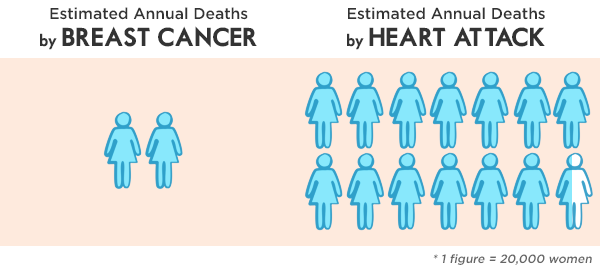
While we’ve gone our merry ways during the last few decades, thinking heart disease was reserved mainly for men, it’s been killing one woman every minute. As a matter of fact, more of us die from heart disease than all forms of cancer, chronic lower respiratory disease, Alzheimer’s disease and accidents combined.
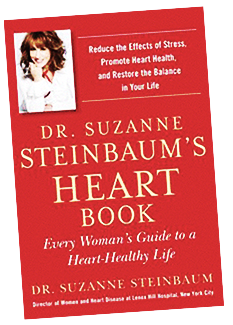
As disheartening as these statistics are, it’s never too late to start taking care of your heart so it doesn’t quit working for you as hard and as loyally as it has for so many years. Important and exhaustive books are written on the subject (one we highly recommend is Dr. Suzanne Steinbaum’s Heart Book: Every Woman’s Guide to a Heart-Healthy Life, Penguin Group, 2013), but here are a few things you should have a handle on as soon as possible, if you don’t already. They will help you determine your risk for developing heart disease:
- Your Cholesterol: Your total cholesterol should be less than 200 mg. Your LDL, or bad cholesterol, should be less than 130, and preferably under 100. Too much LDL in the blood can lead to cholesterol buildup and blockage in the arteries. HDL, or good cholesterol, helps remove cholesterol from the blood. The higher your HDL level, the better! It should be higher than 55 for women.
- Your Blood Pressure: Blood pressure is a measurement of the pressure inside the arteries with each heartbeat. High blood pressure increases the workload of the heart and kidneys, increasing the risk of heart attack. Optimal blood pressure is 120/80 or less.
- Your Blood Sugar Levels: Diabetes occurs when the body is unable to produce insulin or use the insulin it has. This results in elevated blood sugar levels. People with diabetes (especially women) have a higher risk of developing cardiovascular disease because diabetes increases other risk factors, such as high cholesterol, triglycerides and high blood pressure. Keeping diabetes under control is essential to reducing your risk of heart disease. Not getting diabetes in the first place is even better. Your fasting blood sugar level should be 100 mg or less.
- Your Weight: The more you weigh, the harder your heart has to work to give your body nutrients. Excess weight also raises blood cholesterol, triglycerides and blood pressure, lowers HDL cholesterol and increases the risk of diabetes. People who carry their weight in the middle have a greater risk of developing cardiovascular disease, compared to people who carry their weight in their arms and legs. For women, waist circumference should be less than 35 inches.
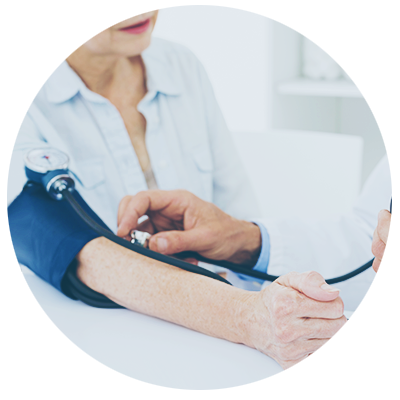
All our body’s functions are influenced by what we eat and how we exercise, not to mention factors such as our genes, our stress levels and how much alcohol we drink or whether we smoke. For example, weight-bearing exercises help build the strength of our bones; aerobic exercises make our hearts smile, and exercises like yoga build our core strength so we won’t shuffle down the street when we’re 90, afraid we’ll fall.
Things get a little more complicated in the food arena, because every day we get new recommendations.
One day blueberries and almonds are good for us; the next day we’d better eat soy and kale. But what if what we eat doesn’t give us enough of the daily nutrients we need to keep our hearts healthy? Besides, we don’t even know exactly what we need in the first place. Even if we did, it’s almost impossible to follow the same routine every day. We might be working non-stop one day and only have time to grab a couple of not-so-healthy snacks. The next day we’re on the road and eating in airport restaurants.
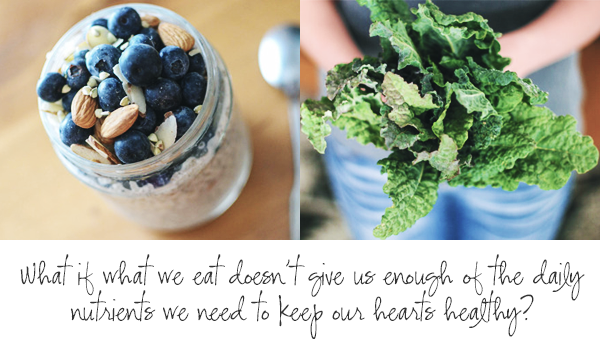
Should we take supplements and how do we know which ones? The drugstore and vitamin store shelves are packed with so many bottles, with so many names, our heads spin every time we approach them. What about the parade of “protein-rich nutrition shakes”? How do we know if they’re really giving us the proper nutrition. And, if we drink them can we forget the supplements? If only we could hire a professional nutritionist to supervise our diets and keep track of the nutritional value of everything going into our mouths!
Ensure, a brand that has been specifically addressing adult nutrition needs for over four decades, wants us to think of it as our own personal nutritionist. Its new line of Ensure Active shakes and drinks is designed to help “active adults stay healthy and energetic” by meeting our most important nutritional needs and health goals.
One of its new shakes, Ensure Active Heart Health, has low levels of cholesterol, sodium, and fat to fit within a heart healthy diet. Secondly, its low in sodium but high in potassium, so it also may help reduce the risk of high blood pressure. Lastly, its “plant- based phytosterols may help lower cholesterol.” On a molecular level, sterols look a lot like cholesterol, so when they travel through our digestive tracts, they get in the way. However, they can prevent real cholesterol from being absorbed into our bloodstreams. Instead of clogging up our arteries, the cholesterol just goes out with the waste, 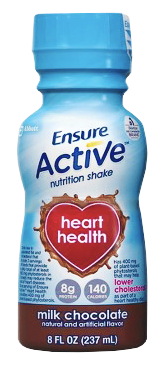 according to the website, WebMD.
according to the website, WebMD.
The label on the Ensure Active Heart Health bottle says that one eight-ounce glass will provide 400 mg of these plant-based phytosterols. “Diets low in saturated fats and cholesterol that also include two servings of food a day with 800 mg of phytosterols, in two meals, may reduce the risk of heart disease.”
Provided we’re exercising and eating properly, it looks like Ensure Active Heart Health would be just what the company claims: “An excellent choice for an occasional breakfast, lunch or as a between-meal snack.” It sure takes some of the guesswork out of our lives. We’ve got enough to do as it is.
Ensure partnered with bloggers such as me for its Ensure Active blogger program.
As part of this program, I received compensation for my time. Ensure believes that consumers and bloggers are free to form their own opinions and share them in their own words. Ensure’s policies align with WOMMA Ethics Code, Federal Trade Commission (FTC) guidelines and
social media engagement recommendations.

